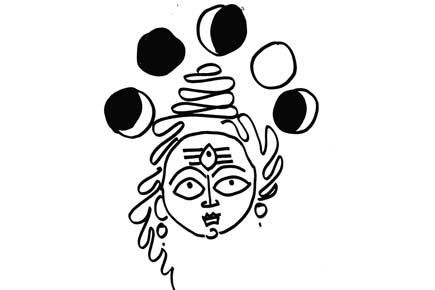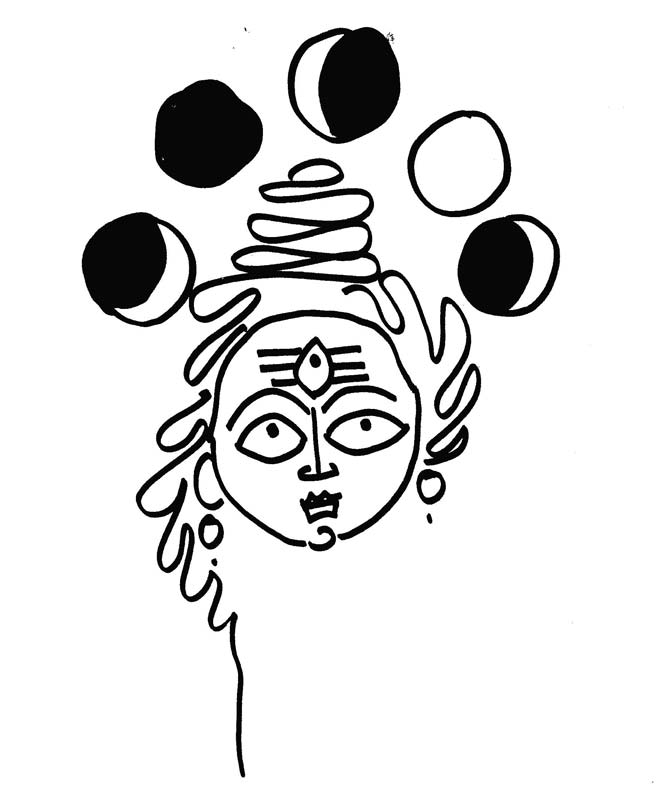In universities around the world, there is an implicit acceptance of teleology, that human culture is moving from the primitive to the refined, from underdeveloped to developed, much like moving towards the Promised Land described in Abrahamic mythologies


Illustration/Devdutt Pattanaik
ADVERTISEMENT
 In universities around the world, there is an implicit acceptance of teleology, that human culture is moving from the primitive to the refined, from underdeveloped to developed, much like moving towards the Promised Land described in Abrahamic mythologies. But are they referring to the psychological or the technological?
In universities around the world, there is an implicit acceptance of teleology, that human culture is moving from the primitive to the refined, from underdeveloped to developed, much like moving towards the Promised Land described in Abrahamic mythologies. But are they referring to the psychological or the technological?
Contemporary time is viewed as an improvement over colonial and industrial times, which was an improvement over the dark feudal ages of Christendom, which was an improvement over pagan times. This is how history is taught in the West. We are better than the past as we have better laws and technology.
The same approach is applied to India. The Vedas, which are 4,000 years old, is seen as less refined than the 3,000-year-old Upanishads, which in turn is less refined than the 2,000-year old Puranas, which in turn is less refined than the 1,000-year old Bhakti poetry tradition. In this view, the idea of God 'evolves' in Hindu history. It needs to be transform, evolve, even abandoned, as in the West, into atheism, rationality and belief in justice and equality.
However, an alternate approach - let's call it the Hindu approach - is to see the various texts as struggling to communicate a single idea in a better way. From the Vedas through the Upanishads, Puranas and Bhakti poetry, we see the struggle to communicate the same Vedic idea in a way that is more relevant and meaningful to a particular context. Here, technology may change, laws may change, expression may change, but the central Vedic idea remains the same.
The Vedic idea is about the human condition: How we perceive and respond to the world around us. It is about human hunger and fear. It is human psychology. This does not change even though humans develop newer ways of living together, and find newer ways to control the environment around them. Our hunger and fear 5,000 years ago is the same as it is today. We are as greedy and jealous today as we were 5,000 years ago. Whether we rode chariots or fly in aeroplanes, we still desire for things, and we still suffer when desires are not met.
Western scholars argue that this is projecting modern ideas on the past. Here intellectual refinement is seen as following the path of technological refinement. Our mind evolves as we increasingly control matter. This assumption needs to be questioned, as it as dangerous to science as the Papal injunction against Galileo. It assumes that humans of the past had a poorer understanding of the human condition than humans of the present.
The Vedas are not interested in human technology that may have progressed over time. They are interested in timeless human response to the world around us, laws and technology notwithstanding. That is why the Vedas are called sanatan dharma, the eternal doctrine.
If for the West real progress is material and social, in the Hindu way of thinking, real progress is psychological (shall we say, spiritual). Material and social progress can benefit many people, even if they don't change psychologically.
Psychological progress works wonders at an individual level, impacts only the relationship around, but not the whole world. For Hindu sages, changing the world is delusional, changing oneself is more real. For Western philosophers, changing the world is more meaningful, as individuals change has no great impact on the world at large.
The author writes and lectures on the relevance of mythology in modern times. Reach him at [email protected]
 Subscribe today by clicking the link and stay updated with the latest news!" Click here!
Subscribe today by clicking the link and stay updated with the latest news!" Click here!






